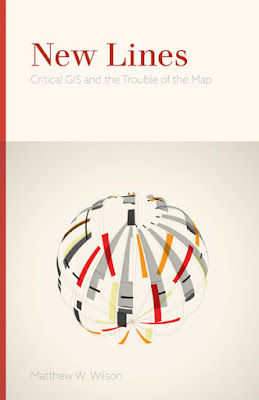Data matter(s): legitimacy, coding, and qualifications-of-life
I'm excited to see that Society & Space (E&PD) has published my manuscript. Find a preprint copy, here.
Abstract:
Data are central to geographical technologies and provide the pathways in which geographic investigations are forwarded. The mattering of data is therefore important to those engaging in participatory use of these technologies. This paper understands ‘mattering’ both in the material sense, that data are products resulting from specific practices, and in the affective sense, that data are imaginative, generative, and evocative. I examine these senses of mattering, of both presence and significance, in a discussion of a community survey project held in Seattle, USA. During this four-year project, residents in ten neighborhoods were asked to collect data about their community streets using handheld computers. Residents tracked ‘assets’ and ‘deficits’ by locating objects such as damaged sidewalks and graffiti on telephone booths. These data records were then uploaded to a central server administered by a local nonprofit organization. The nonprofit worked with community residents to help link these data about their changing neighborhoods to agencies in the municipal government. Here, I argue that the legitimacy of these data practices is constructed through processes of standardization and objectification and that these processes transduct urban space. I ask, as participatory mapping practices target governing agencies with their data products, what are the implications for the kinds of knowledge produced and for its legitimacy? In other words, how does data come to matter?
Abstract:
Data are central to geographical technologies and provide the pathways in which geographic investigations are forwarded. The mattering of data is therefore important to those engaging in participatory use of these technologies. This paper understands ‘mattering’ both in the material sense, that data are products resulting from specific practices, and in the affective sense, that data are imaginative, generative, and evocative. I examine these senses of mattering, of both presence and significance, in a discussion of a community survey project held in Seattle, USA. During this four-year project, residents in ten neighborhoods were asked to collect data about their community streets using handheld computers. Residents tracked ‘assets’ and ‘deficits’ by locating objects such as damaged sidewalks and graffiti on telephone booths. These data records were then uploaded to a central server administered by a local nonprofit organization. The nonprofit worked with community residents to help link these data about their changing neighborhoods to agencies in the municipal government. Here, I argue that the legitimacy of these data practices is constructed through processes of standardization and objectification and that these processes transduct urban space. I ask, as participatory mapping practices target governing agencies with their data products, what are the implications for the kinds of knowledge produced and for its legitimacy? In other words, how does data come to matter?


Comments
Post a Comment